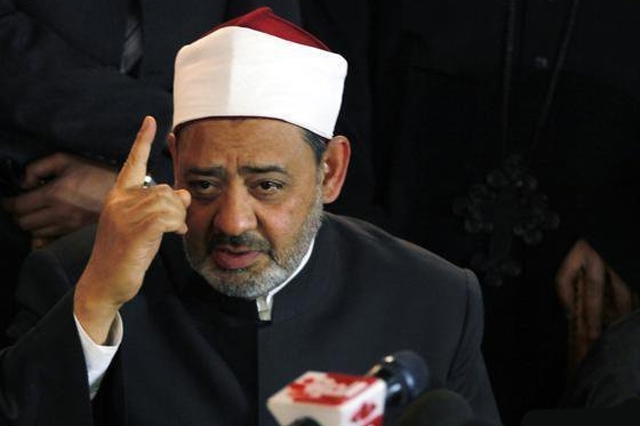Grand Shaikh of Al Azhar named world’s most influential Muslim
November 13, 2017 2023-07-11 9:30Grand Shaikh of Al Azhar named world’s most influential Muslim

Grand Shaikh of Al Azhar named world’s most influential Muslim
The honor was bestowed on Shaikh Ahmad Muhammad Al-Tayyeb by the “Muslim 500”, an annual publication which ranks the most influential Muslims in the world. The Muslim 500 is compiled by the Royal Islamic Strategic Studies Centre in Jordan. Sheikh Tayyeb was appointed as Grand Sheikh of al-Azhar in March 2010 by former Egyptian dictator Hosni Mubarak. He leads the second-oldest university in the world, where teaching has continued without interruption since 975 CE.
Al-Azhar is also currently the largest university in the world, having risen from a group of three schools in the 1950s to its current state with 72 feeder schools, and close to 300,000 students studying there at any one time.
The Muslim 500 said: “His scholarly influence as a leading intellectual of Sunni Islam spans the globe. He has served as the Dean of the Faculty of Islamic Studies in Aswan, and the theology faculty of the International Islamic University in Pakistan. He has also taught in universities in Saudi Arabia, Qatar, and the United Arab Emirates.”
The publication added: “Over the past years of political uncertainty and unrest in Egypt and in particular during the months that led up to the Egyptian armed forces deposing Muhammad Morsi as President of Egypt, Tayyeb attempted to mediate between Morsi and his Muslim Brotherhood-dominated government on the one hand and opposition political forces on the other. It was the only time Morsi and the opposition sat together and given their mutual intransigence, Tayyeb’s attempt at mediation did not succeed.
“While Tayyeb has been outspoken against the Muslim Brotherhood for their exploitation of Islam as a political ideology, al-Azhar has experienced recent tensions with the establishment of President Abdel Fatah al-Sisi. President al-Sisi has increasingly called on a ‘religious revolution’ and efforts to ‘renew Islamic discourse,’ which have been met by ambivalence by the Azharite establishment.”
In August 2016 during the World Islamic Conference held in Grozny, Chechnya, Sheikh Tayyeb defined the Sunni community as those who follow Imam Abul-Hasan al-Ash’ari and Imam Abu Mansur al-Maturidi and the scholars of Hanafi, Maliki, and Shafi’i jurisprudence, as well as the “moderate scholars” of Hanbali school. He also included the Sufis following in the way of Imam al-Junayd.
The rest of the list of the top 10 most influential Muslim figures was dominated by political personalities:
2. King Salman of Saudi Arabia
3. King Abdullah II of Jordan
4. Grand Ayatollah Sayyed Ali Khamenei, Supreme Leader of Iran
5. President Recep Tayyip Erdogan, President of Turkey
6. King Mohammed VI of Morocco
7. Sheikh Muhammad Taqi Usmani, Deobandi leader
8. Grand Ayatollah Sayyid Ali Sistani, Marja of the Hawza, Najaf, Iraq
9. Sheikh Abdullah Bin Bayyah, President of the Forum for Promoting Peace in Muslim Societies
10. Sheikh Al-Habib Umar bin Hafiz, Director of Dar Al Mustafa, Tarim, Yemen.
Source: 5Pillars








